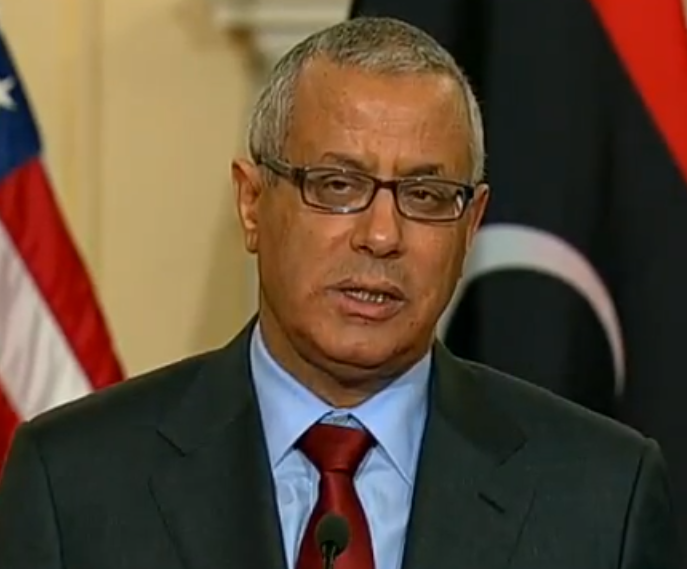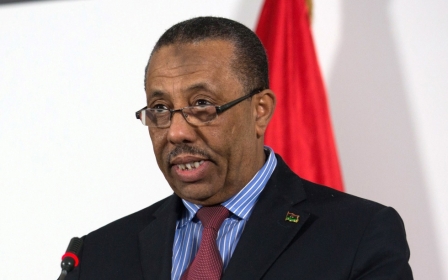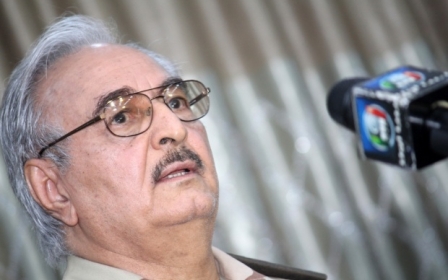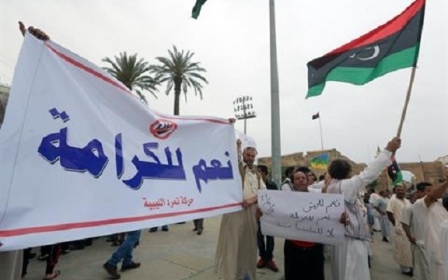Former prime minister Zeidan returns to Libya amid rising instability

Former Libyan prime minister Ali Zeidan, who fled the country in March after being sacked by parliament, has returned to the country and reasserted his claims over the premiership.
Zeidan appeared on Libyan television on Wednesday to announce that he still considered himself Libya’s rightful leader, despite being dismissed by the General National Congress, which acts as Libya’s parliament, for alleged corruption.
The 63-year-old revealed that he was now in Baida near Benghazi in eastern Libya, saying that his dismissal had been "unconstitutional". He has denied the allegations of corruption and slammed a travel ban imposed on him in March, saying that it had been "politically-motivated" and that he was keen to resume his “political struggle".
"I will initially settle down in Baida among my friends and family," Zeidan said, while stressing that he had fled to expose "violations" committed by his country's parliament.
Last month, Zeidan announced his support for rogue Libyan general Khalifa Haftar, who has waged a fierce campaign against “terrorist” groups that he says have gained too much influence in Libya since the 2011 overthrow of Muammar Gaddafi.
Haftar has since set up base in eastern Libya and has continued to launch attacks and airstrikes on Benghazi.
Political tensions have been rising for months, with a struggle for power between two prime ministers complicating the situation as fears of civil war mounted.
Prime Minister Abdullah al-Thani, who was elected back in April, resigned shortly after taking office following an attack on his home. However, he then refused to renounce his post claiming that his successor Ahmed Miitig’s election was unconstitutional.
The Libyan Supreme Court eventually threw out Miitig’s election, with Miitig agreeing to step aside despite concerns that he would continue to hold onto power.
Libya is now due to hold elections on 25 June to elect a House of Representatives that will replace the General National Congress.
New MEE newsletter: Jerusalem Dispatch
Sign up to get the latest insights and analysis on Israel-Palestine, alongside Turkey Unpacked and other MEE newsletters
Middle East Eye delivers independent and unrivalled coverage and analysis of the Middle East, North Africa and beyond. To learn more about republishing this content and the associated fees, please fill out this form. More about MEE can be found here.




